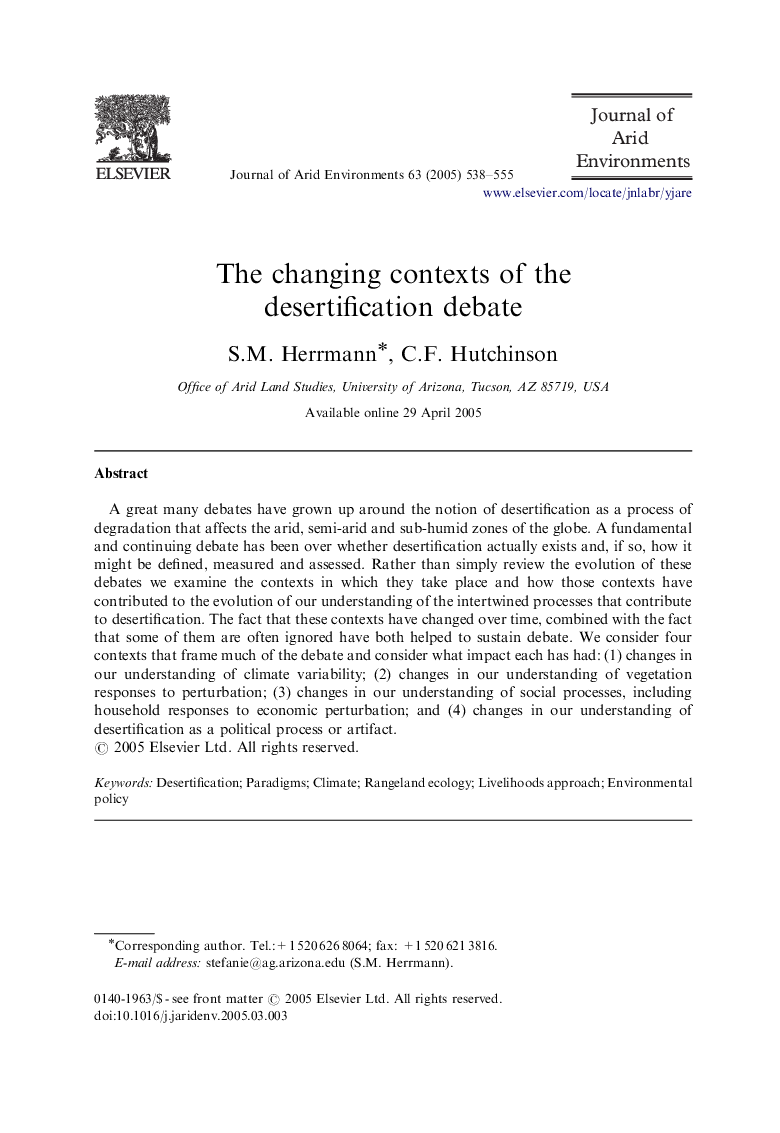| Article ID | Journal | Published Year | Pages | File Type |
|---|---|---|---|---|
| 9447874 | Journal of Arid Environments | 2005 | 18 Pages |
Abstract
A great many debates have grown up around the notion of desertification as a process of degradation that affects the arid, semi-arid and sub-humid zones of the globe. A fundamental and continuing debate has been over whether desertification actually exists and, if so, how it might be defined, measured and assessed. Rather than simply review the evolution of these debates we examine the contexts in which they take place and how those contexts have contributed to the evolution of our understanding of the intertwined processes that contribute to desertification. The fact that these contexts have changed over time, combined with the fact that some of them are often ignored have both helped to sustain debate. We consider four contexts that frame much of the debate and consider what impact each has had: (1) changes in our understanding of climate variability; (2) changes in our understanding of vegetation responses to perturbation; (3) changes in our understanding of social processes, including household responses to economic perturbation; and (4) changes in our understanding of desertification as a political process or artifact.
Related Topics
Physical Sciences and Engineering
Earth and Planetary Sciences
Earth-Surface Processes
Authors
S.M. Herrmann, C.F. Hutchinson,
